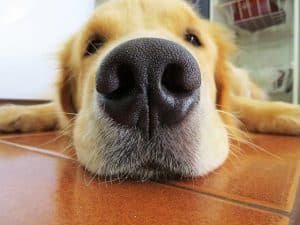Monitoring your cat’s weight is a great way of checking on your pet’s health. If you notice any sudden changes, for instance, sudden weight loss or weight gain without any changes in diet, then your feline may be suffering from an underlying medical condition.
Before going to the vet, it is advisable to monitor its behavior to see if there are any changes in their habit. When cats are inactive, they tend to add weight. Alternatively, they may become more active leading to weight loss.

Pay attention to other symptoms, for instance, does it exhibit lethargy? Have there been any changes in your pet’s diet? Has there been any recent intake of medications or vaccinations that may have triggered the weight change? Was your cat recently unwell?
Contents
Why is your cat losing weight?
There are several factors that may trigger weight loss in cats. The causes range from improper feeding to serious cases such as organ failure. Some of the illnesses that may cause sudden weight loss include:
1. Feline diabetes
A high number of cats are developing diabetes mellitus lately. This condition entails the body’s inability to produce enough insulin for the break-down of blood sugar. If not diagnosed soon, the condition can lead to appetite loss, weight loss, vomiting, dehydration, and depression.
The main symptom of diabetes mellitus is increased urination. Felines that are obese have a high-risk of developing diabetes.
2. Feline Leukemia Virus (FeLV)
Cat leukemia is the second leading cause of death in cats. This virus infection impairs the immune system and can trigger certain cancers. FeLV affects all cat breeds and leads to symptoms such as progressive weight loss, lethargy, fever, severe diarrhea, abscesses, uncoordinated/wobbly movement, fever, moist eye tissues, and inflammation of the nose and mouth tissues. This viral infection can be contracted through feline-to-feline transmission (e.g. bites, grooming, and sharing dishes etc.).
3. Kidney problems
There are a variety of factors that can lead to kidney failure in cats. They include malformation of the kidneys at birth, bacterial infection, exposure to toxins, and immune system disorders such as lupus, amongst others.
Kidney failure can trigger sudden weight changes in cats. Other symptoms include frequent urination and thirst, vomiting, diarrhea, leaking urine especially at night, depression. There are some feline breeds that are susceptible to kidney failure. They include the Russian Blue, Abyssinian, Maine Coon, Persian, Siamese, and the Burmese Species.
4. Feline anorexia
There are two types of feline anorexia. The pseudo-anorexia, and true anorexia. In pseudo anorexia, the cat is hungry but unable to feed because of difficulty in chewing, picking up the food, or difficulty in swallowing. A feline with sinuses may exhibit pseudo-anorexia as they may have difficulty in feeding.
On the other hand, true anorexia involves a general decrease in appetite and it is unable to feed. There are many factors that can lead to anorexia. For instance, advanced periodontal disease, a medical condition affecting the nerves, cancer, or a condition affecting the digestive system. Certain medications can trigger anorexia as a side-effect.
5. Liver disease
These pets are susceptible to liver disease, with the most common medical condition being hepatic lipidosis (fat liver). This condition is caused by the accumulation of fat in the liver leading to liver damage. The cause of this condition is unknown. However, it is common in obese, diabetic cats.
Also, the condition can be triggered by sudden dietary changes or stress. Anorexia is a common symptom of hepatic lipidosis. Similarly, other medical conditions affecting the liver such as copper storage hepatopathy, or acute liver failure can lead to weight loss.
6. Gastrointestinal problem (GI problems)
There are numerous diseases that can lead to GI problems. They include bowel infections, food allergies, adverse reactions to certain foods, or any other disorder that affects the absorption of food. Any disease affecting the gastrointestinal tract can lead to your cat losing weight. Other infections include vomiting, diarrhea, pain, and fever.
7. Parasite Infection
A parasitic infection can lead to rapid weight loss in cats. Worms are the most common infection that can trigger this problem. When they are infected with worms your cats may be eating but still losing weight.
8. Quality of food
Like humans, felines are mindful of what they eat. If it is a new type of food, or it is food that has overstayed for long, food that smells bad or food that contains ingredients that they do not like, then you may notice a sudden change in feeding behavior.
For instance, old food can develop mold or yeast. If the food has stayed for over a month, it may have a bad taste and your pet may refuse to eat the food. This, in turn, can lead to feline cat losing weight. Similarly, the introduction of new food can make them stop eating. If this is the case, then it is advisable to switch back to the old food, and slowly introduce the new food.
Other factors that may lead to significant weight loss in felines include gastrointestinal obstructions, chronic blood loss, pregnancy and nursing, neurological conditions, certain skin lesions, intestinal tumors, and extreme temperature changes. There are also a vast array of diseases and infections that can lead to this problem, for instance, Addison’s disease, fungal infections, hyperthyroidism etc.
What if my cat is eating but losing weight?
If you notice that your cat has a good appetite but is still losing weight, then the issue may be a parasitic infection, hyperthyroidism, diabetes, or a tumor. Also, it is advisable to check if your pet is getting enough food as in some cases, it may not be eating enough. You need to visit a veterinarian soon to get to the root of the problem.
Is it normal for an elderly cat losing weight?
Is it normal for an old such as an 18 or 16year old cat to lose weight? There is a tendency to link this problem in senior cats to aging. However, this is not so. Whether old or young, weight loss is a sign of an underlying medical condition.
It is common for senior cats to lose weight. The loss may be because of stressors in the environment, for example, the introduction of a new pet in the house.
Also, there are a variety of medical conditions that may trigger weight loss, for instance, cardiovascular conditions, respiratory disease, GI disease, kidney failure, or an endocrine condition. A prompt diagnosis is important to help your feline regain their health.
Concluding remarks
It is important to pay attention to your pet’s behavior, and any environmental changes that may cause stress. For example, homes, where pets tend to compete for food, can lead to weight loss in a cat due to underfeeding.
Also, an inability to smell the food or visual impairment may impede the cat’s ability to feed. Sudden weight loss in felines is not at all normal. Therefore, it is advisable to visit a vet for proper diagnosis and treatment options that will help your pet regain its normal weight.
References:





Leave a Reply
You must be logged in to post a comment.